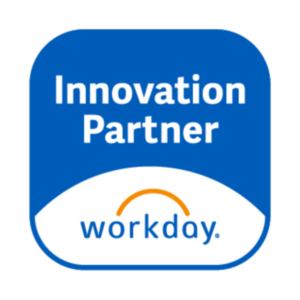
Amidst the rise of social movements, environmental crises, ongoing pandemic concerns, and ethical lapses in the news, workforces, consumer bases, investors and activist communities are more determined than ever to raise their voices and be heard. Companies must be ready to listen and prepared to respond in the form of a robust Speak-Up culture.
What is a Speak-Up Culture?
In a Speak-Up workplace culture, employees are willing and able to ask questions and raise concerns when they witness or experience misconduct. They should be able to do so with confidence that their reports are taken seriously and without fear of retaliation.
For a Speak-Up culture to thrive, there needs to be a countervailing Listen-Up culture. It requires a leadership team and Board that make safe and accessible reporting tools available, listen to the reports with all seriousness, have procedures in place to address them, and incorporate learning back into the business to prevent them from re-occurring. A balanced Speak-Up, Listen-Up culture is vital for a healthy business to thrive without making headlines for the wrong reasons.
Why You Should Review Your Culture
The EU Whistleblower Directive (EUWD) came into effect in December 2021. It directs companies with 250 employees or more working in the EU (including those headquartered outside of the EU but with operations in EU jurisdictions) to make internal whistleblower reporting and resolution schemes available. The Directive aims to protect those who Speak Up about breaches of EU laws from retaliation or recrimination and is a minimum standard that leaves each of the 27 EU member states to define how to establish the necessary protection for whistleblowers.
With the EUWD looming large, corporate misconduct still rampant, and trust impacting staff retention, this Directive should – at the very least – be an impetus for companies to assess their culture and to commit to moving the needle on trust by implementing a Speak-Up, Listen-Up culture that empowers stakeholders to use their voices and that holds leadership accountable to its ethical commitments.
Building Trust
The glue that holds both parts of a Speak-Up, Listen-up Culture together is trust. Leadership teams must trust that concerns are raised in good faith while employees need to trust that they are being heard and protected from retaliation. As Warren Buffet famously said, “Trust is like the air we breathe – when it’s present, nobody really notices; when it’s absent, everybody notices.” Now is the time for companies to evaluate the trust gap between them and their employees.
The news is full of stories of toxic workplace cultures where trust was absent. Some companies that use legacy hotline solutions still fail to provide an environment in which it’s safe for employees to use it or choose not to listen even when employees do use the hotline.
Tone from the Top
When leadership teams or board members turn a blind eye or worse, perpetuate misconduct – when the tone at the top is wrong – corporate culture falters. Therefore, it’s vital that leadership teams and board members adopt a ‘do as I do’ mentality that permeates the organization at every level. When values-based conduct is role-modeled by the leadership team and the Board, a healthy Speak-Up, Listen-Up culture is supported and reinforced in every interaction.
A diverse Board of Directors helps set the Tone from the Top by sending the message that the company is willing and able to listen and respond to the diverse voices of its stakeholders. It is a signal to employees that it’s safe to be their authentic selves and to Speak Up without fear.
More often than not, employees take their cues from their immediate supervisors, so Mood in the Middle is crucial. Ethical leaders are the backbone of an ethical culture, and therefore, managers need to role model ethical behavior. But they also need to be trained on how to create an ‘open door’ policy and listen to and guide their employees, how to escalate reports through the appropriate channels, and how to protect their employees from retaliation.
Investing in technology
The next step in bridging the trust gap is the adoption of a technology solution in the form of a safe, secure, and agile digital platform that demonstrates a company’s willingness to support a Speak-Up, Listen-Up culture. The platform can also help the company comply with the EUWD’s requirements for establishing a whistleblower scheme and other regulations; effectively deal with reports of potential or actual misconduct, including providing safeguards for confidentiality and anonymity that encourage reporters to report internally first, facilitate getting to resolution efficiently, and identify and address risk patterns and trends through analytics.
The role of Communication
Communication is key to building trust in the system, reinforcing Tone from the Top, and setting the Mood in the Middle. A cross-functional communication plan helps employees and stakeholders know how to report concerns. It reinforces the principles of confidentiality, privacy, and non-retaliation, and clarifies the process and potential outcomes, including fair and equitable disciplinary action. The plan should include a Code of Conduct and related policies, including an investigation protocol, to make sure that stakeholders understand and acknowledge their rights and responsibilities. It should also clarify that leadership is held accountable for its commitment to fair, equitable, and transparent due process.
A Speak-Up, Listen-Up culture is ever a work in progress, so companies need to commit to continuous improvement through employee feedback surveys gauging their experience of the culture and the Speak-Up process. Ongoing enterprise risk assessments and audits, tracking and analyzing performance metrics relative to communications, training, hiring, and retention, among other things, are a crucial part of measuring culture. The insight derived from these elements should be reported on a regular basis to the leadership team and the Board to provide maximum transparency and drive accountability to an ethical culture.
The Benefits of a Speak-Up, Listen-Up Culture
In his 2018 letter addressing CEOs, Blackrock CEO Larry Fink declared that to prosper over time, every company must not only deliver financial performance but also show how it makes a positive contribution to society. Companies that develop and promote a Speak-Up, Listen-Up culture engender trust with their employees, creating a stronger brand reputation and boosting brand loyalty. They can also get ahead of issues before they become bigger ones, minimize the risk of ethical breaches and incidents of misconduct hitting the headlines, and reduce the toll of investigations, costs, penalties, and damages. As a result, their employees will feel safer, respected, empowered, and committed, which in turn improves productivity and staff retention. Not only are these companies better for it, but they are also models for others to follow suit.
Measuring the Benefits
When companies implement a Speak-Up, Listen-Up program, along with a flexible and agile digital reporting platform, their incident report numbers may rise initially with greater employee trust and awareness. This increase in reports made in good faith, in fact, provides more opportunities to listen, do root cause analyses, and take corrective actions to prevent future issues. The company is also likely to see a shortened turnaround time from report to resolution, a decline in reported incidences of retaliation, and a significant drop in the number of concerns reported externally. In addition, employee survey scores should be higher on questions of trust and confidence and lower on questions of fear of retaliation. Just as important, by creating a centralized, documented, and auditable record of all reports, along with their investigation and resolution, companies can demonstrate their best efforts to be better.
Not yet discovered the secret sauce to a Speak-Up and Listen-Up culture? We can help.
***
Frequently Asked Questions
What is a Speak Up culture?
In a Speak-Up workplace culture, employees are willing and able to ask questions and raise concerns when they witness or experience misconduct and can do so with confidence that their reports are taken seriously and without fear of retaliation.
How to build employee trust?
The glue that holds culture together is trust. Leadership teams must trust that misconduct concerns are raised in good faith while employees need to trust that they are being heard and protected from retaliation.
How to promote ethical behavior in the workplace?
When leadership teams or board members turn a blind eye or worse, perpetuate misconduct – when the tone at the top is wrong – corporate culture falters. Therefore, it’s vital that leadership teams and board members adopt a ‘do as I do’ mentality that permeates the organization at every level.
What is tone at the top?
Tone at the top is when values-based conduct is role-modeled by the leadership team and a diverse Board, a healthy culture is supported and reinforced in every interaction, and shows that the company is willing to listen and that it’s safe for employees to Speak Up without fear.




